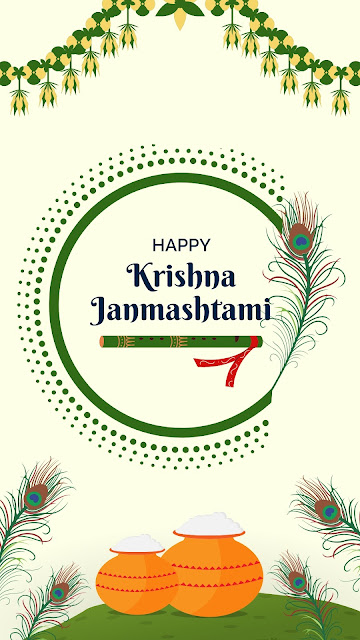A jolly and playful god is available in Hinduism, Wow, read this for more information.
The meaning of the sanskrit word "janmashtami" can be understood by splitting it into the two words, "janma" and "ashtami." The word "janma" means birth and the word "ashtami" means eight; thus, Krishna Janmashtami is the celebration of Krishna's birth on the eighth day of the dark fortnight in the month August–September.
Celebration of Krishna jayanthi
People
sing bhajans (devotional songs) and dance to celebrate Lord Krishna's birth.
Dress Up: Many children dress up as Lord Krishna or Radha for
the occasion. Swinging Cradles: In temples, a small cradle with a statue of
baby Krishna is swung gently.
Krishna is often considered to be a jolly and playful God and
thus many children like him very much. Read on and find how to celebrate
Krishna Janmashtami with kids.
Legends and stories of Krishna describe him as naughty and
playful, but very sweet and loving at the same time. Lord Krishna’s childhood
was full of enthralling incidents and most of the Hindu parents do not miss
telling stories of Krishna’s childhood to their kids. Little kids in India are
often referred as ‘Bal Krishna’ by Hindus which make Janmashtami celebrations with kids significant.
Celebrating Janmashtami with kids can be really
fun. You can celebrate with children and teach them more about Krishna
Life and Appearance of Lord Krishna
Lord
Krishna always emphasized on justice and truth. He always fought against evil.
Lord Krishna’s teachings for humanity can be found in the holy Bhagwat Gita.
Lord Krishna had dark skin and could always be seen playing the flute. He used
to wear a crown with a peacock feather attached to it. Dressing up little
children like Lord Krishna makes them look very cute.
Krishna
and his love for milk products
The Gokulam village where Krishna resided, was populated by
“Gopalas,”. As a result, the community had an excess of milk, curds, and
butter. Krishna loved butter and would take advantage of every chance to steal
a pot from his mother or any other mother in the village. In order to prevent
Krishna or his pals from getting to the butter pots, all the moms, or “Gopis,”
as they were known, began hanging them to the ceiling.
Krishna would collaborate with his companions to reach these pots,
which were fastened to the ceiling quite high up. They would either climb up to
the roof and move the ceiling tiles or stand on each other’s shoulders to make
a human ladder. They would throw a stone at the saucepan and take turns
collecting the butter with their open lips if none of the other methods
succeeded.


.png)
Comments
Post a Comment